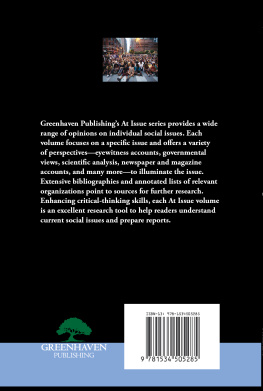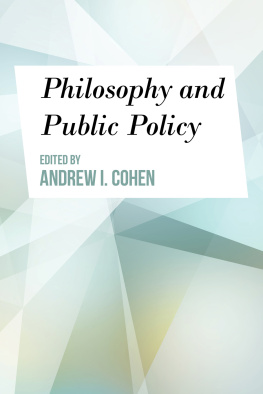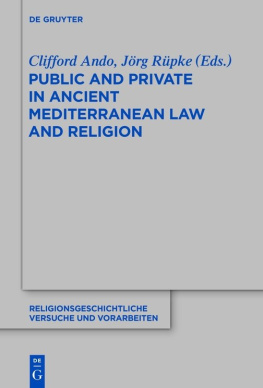Through the keyhole
A history of sex, space and public modesty in modern France
Marcela Iacub
Translated by Vinay Swamy
Manchester University Press
Copyright Librairie Arthme Fayard 2008
The right of Marcela Iacub to be identified as the author of this work has been asserted by her in accordance with the Copyright, Designs and Patents Act 1988.
Published by Librairie Arthme Fayard 2008
First English-language edition published in 2016 by Manchester University Press
Altrincham Street, Manchester M1 7JA
www.manchesteruniversitypress.co.uk
British Library Cataloguing-in-Publication Data
A catalogue record for this book is available from the British Library
Library of Congress Cataloging-in-Publication Data applied for
ISBN 978 1 7849 9152 4
The publisher has no responsibility for the persistence or accuracy of URLs for any external or third-party internet websites referred to in this book, and does not guarantee that any content on such websites is, or will remain, accurate or appropriate.
Typeset in 10/12 Sabon by
Servis Filmsetting Ltd, Stockport, Cheshire
Contents
Acknowledgments
First and foremost, I would like to thank Radu Florinel, who, in December 2006, invited me to the School for Engineers and Architects in Fribourg to deliver a lecture, which became the inception of this book. Without that invitation, the so-refined and so-secret question of the relationship that our culture has woven between architecture, sexuality and law would never have aroused my curiosity.
Yet without my editor, Sophie de Closets, this work would never have seen the light of day. It was through her encouragement, intelligence and kindness that I could complete the most unpredictable task that is the writing of a book.
I thank my colleagues in the historical Demographics Laboratory at the cole des Hautes tudes en Sciences Sociales (EHESS), in particular, Herv Le Bras and Maurizio Gribaudi, whose helpful comments, and the interest they showed in this project allowed me to improve and deepen my research.
I thank Mathieu Lindon and Arnaud Esquerre for their encouragement and friendship.
Finally, I would like to thank Lola, who accompanied me day and night during the difficult period of the writing of this manuscript, making all kinds of effort and sacrifices to render those times more cheerful.
Marcela Iacub
Abbreviations
| Bull. crim. | Bulletin of the Criminal Chamber of the Court of Cassation |
| Cass. crim. | Criminal Chamber of the Court of Cassation (Supreme Court) |
| D. | Recueil Dalloz (post-1945) |
| DH | Recueil hebdomadaire Dalloz (pre-1941) |
| Dr. p. | Droit pnal |
| GP | Gazette du Palais |
| JCP | Juris-classeur priodique (Semaine juridique) |
| RSC | Revue de science criminelle et de droit pnal compar |
| S. | Recueil Sirey |
Translators foreword
A remarkable book-length study by a dynamic and prolific author whose work has not been previously available to an Anglophone readership, Marcela Iacubs Through the keyhole is a significant contribution to what, since Foucault, has been called the history of sexuality. It traces the history of the word pudeur (modesty, often translated as decency in the legal context) as a specifically legal term used in Article 330 of the old Napoleonic Penal Code, which regulated modesty in public space and thus sexuality in general. Having held sway over French society for almost two centuries, the term pudeur was finally taken out of the French legal code during the 1992 reform. Iacub shows how this shift occurred and explores not only the impact of the prolific jurisprudence produced by Article 330 on the ways in which France (and by extension, Western culture) constructs sexuality but also the consequences of such a construction on our understanding of important notions such as public and private space, consent and morality.
Marcela Iacub is of Argentinian origin, and received her law degree in Buenos Aires, where she was admitted to the Buenos Aires Bar as one of its youngest lawyers. She moved to France in 1989, where she completed her doctorate at the cole des Hautes tudes en Sciences Sociales (EHESS). A prolific author of over a dozen substantial works, and a currently a researcher at the CNRS (Centre National de la Recherche Scientifique or the French National Center for Scientific Research), Iacub has made a noticeable impact on the field of sexuality and legal studies both in France and abroad. An Italian translation of this book (Dal buco della serratura, una storia del pudore pubblico dal XIX al XXI secolo) by Graziella Durante was published in 2010 by Edizioni Dedalo. In addition, several of her books have been translated into Italian, Portuguese and Spanish. Yet, for lack of much-needed English translations, none of her work is available or even known to those in the English-speaking world who cannot read French. The present translation seeks to fill this important lacuna.
Iacub uses various significant public debates from different periods of Post-Napoleonic French legal history to frame her analysis. For instance, in 1857, the author tells us, a group of young people who had engaged in an orgy in the confines of a private mansion was sentenced for contempt of public decency because a curious voyeur was able to watch them from the outside through a keyhole. In 1893, Iacub explains, students who organized the second annual Arts Quatz ball in Paris declared a war of the nude against the courts by demanding that certain forms of public nudity be considered chaste. Or, from the 1960s, she excavates a passionate public debate that ensued on whether women bathing topless on French beaches constituted indecent exposure. Iacub shows us that in each of these historical moments, the crux of the debate hinged on the following questions: where does the public end and the private begin? What can we reveal and what ought we to hide?
Today, this old word modesty (or decency) has disappeared from the French legal code and been replaced by the term Sex. But, far from an epic tale of a hard-won freedom, Marcela Iacubs analysis demonstrates how the techniques used by the State have transformed our sexuality into a spectacle in the last two centuries, and have conditioned our spaces, our clothes, cultural practices and even some of our mental illnesses, thus allowing the author to call for a politico-legal history of the gaze.
The 1992 revision of the French Penal Code to no longer include the term pudeur was more than just mere updating of legal vocabulary. It represented not only a semantic shift but also an epistemic rupture, which Marcela Iacub explores in this work through an analysis that blends the fields of law, architecture, literature and psychiatry. We discover how the law has long divided the visible world between domains that are considered legal and illegal with regard to certain acts and behavior, thus transforming real (and sometimes indistinguishable) spaces into institutional and political spaces. In this context, for Iacub, the final erasure of the term










